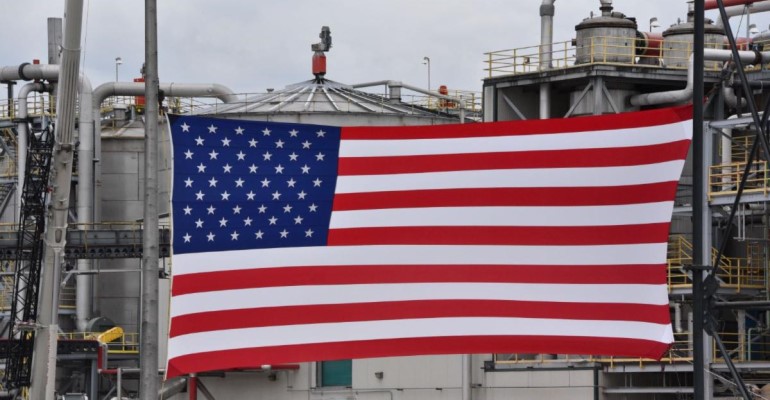
The Environmental Protection Agency released the long-awaited final rule to set Renewable Fuel Standard blending levels for 2021 and 2022. The 2022 blending level is in line with Congressional intent and the 2021 number was increased from the earlier proposal. However, in an unprecedented move, the EPA also reopened and reduced the 2020 RFS rule that was finalized in December of 2019.
EPA finalized a strong renewable volume obligation or RVO for 2022, requiring the statutory volume of 15 billion gallons of conventional renewable fuel and 5.63 billion gallons of advanced biofuels.
In addition, EPA set the 2021 RVO for conventional renewable fuel at 13.79 billion gallons, based on the latest estimates of actual consumption. Finally, EPA finalized the denial of 69 pending small refinery exemption petitions, ensuring that all refiners are held accountable and equally obligated to blend lower-carbon, lower-cost biofuels.
EPA established the applicable 2020 volume requirements and percentage standards in late 2019. Since promulgating those standards, the COVID-19 pandemic caused a major drop in transportation fuel demand, and the volume of gasoline and diesel fuel exempted from 2020 RFS obligations through SREs is far lower than projected in the 2020 final rule.
In its final rule, EPA said these events adversely affected the ability of obligated parties to comply with the applicable standards and to achieve the intended volumes in the 2020 final rule. In this final rule EPA is establishing revised volumes and standards for 2020 based on the actual volumes of renewable fuel and transportation fuel used in the U.S. in 2020, as proposed late last year.
In a separate rule also released, EPA addresses the D.C. Circuit Court 500 million gallon “remand.” The Court found the Obama EPA illegally reduced the 2016 conventional blend level by 500 million gallons and “remanded” the case back to EPA to restore those gallons. EPA plans to add half of those remanded gallons to the 2022 RFS level and says it will do the other half in 2023.
“At long last, the RFS is being put back on track. Today’s actions by EPA and the Biden administration restore integrity and stability to the RFS program after several years of wanton mismanagement and abuse by the previous administration,” says Renewable Fuels Association President and CEO Geoff Cooper. “The combination of a strong RVO for 2022, restoration of illegally waived volume from 2016, and a new direction for the SRE program puts the RFS program on solid footing for the future. We thank Administrator Regan and President Biden for honoring their commitments to implement the RFS in a way that is fair, transparent, and focused on growth.”
Recently, ethanol has been selling at a discount to gasoline of more than $1/gal at the wholesale level, RFS reports. Additionally, a RFS compliance credit, known as a renewable identification number, is attached to each gallon of ethanol sold domestically; this is provided free of charge, helping to offset the cost of gasoline.
American Fuel & Petrochemical Manufacturers President and CEO Chet Thompson says the refinery industry supports support EPA’s commonsense decision to align the 2020 and 2021 standards with actual production volumes for those years in which COVID-19 lockdowns wreaked havoc on fuel demand.
“The 2022 standard, however, is bewildering and contrary to the administration’s claims to be doing everything in their power to provide relief to consumers,” Thompson says. “Unachievable mandates will needlessly raise fuel production costs and further threaten the viability of U.S. small refineries, both at the expense of consumers. The administration missed a prime opportunity to provide relief and will have no one to blame for this but themselves.”
The final rule recognizes the continued growth of biodiesel, renewable diesel and other clean fuels and establishes readily achievable program obligations, according to the Clean Fuels Alliance America, formerly known as the National Biodiesel Board. Biodiesel and renewable diesel accounts for more than 5% of the nation’s heavy-duty transportation and shipping fuel. A recent study from the World Agricultural Economic and Environmental Service shows that U.S. biodiesel and renewable diesel production generates a 4 percent decrease in the price of diesel fuel.
Kurt Kovarik, vice president of federal affairs for Clean Fuels, says, “We support EPA’s efforts to get the Renewable Fuel Standard back on track and to finalize 2022 volumes as a jumping off point for future growth. We stand ready to work with the agency to move forward and set volumes for 2023 and beyond. And we encourage the agency to quickly finalize new feedstocks pathways, such as that for canola oil.”
$700 million in support to biofuel producers
On June 3, Secretary Tom Vilsack announced that USDA has provided $700 million to help lower costs and support biofuel producers who faced unexpected market losses due to the COVID-19 pandemic. The funds are being made available through the Biofuel Producer Program, which was created as part of the Coronavirus Aid, Relief, and Economic Security Act. The investments include more than $486 million for 62 producers located in socially vulnerable communities.
Vilsack notes, “The investments we’re announcing today will pave the way to economic recovery for America’s biofuel producers, stimulate a critical market for U.S. farmers and ranchers, and support our nation’s transition to a clean-energy economy.”
USDA is making payments to 195 biofuel production facilities to support the maintenance and viability of a significant market for agricultural producers of products such as corn, soybean or biomass that supply biofuel production. These biofuel producers experienced unexpected market losses on a combined 3.7 billion gallons as a result of COVID–19.
About the Author(s)
You May Also Like






